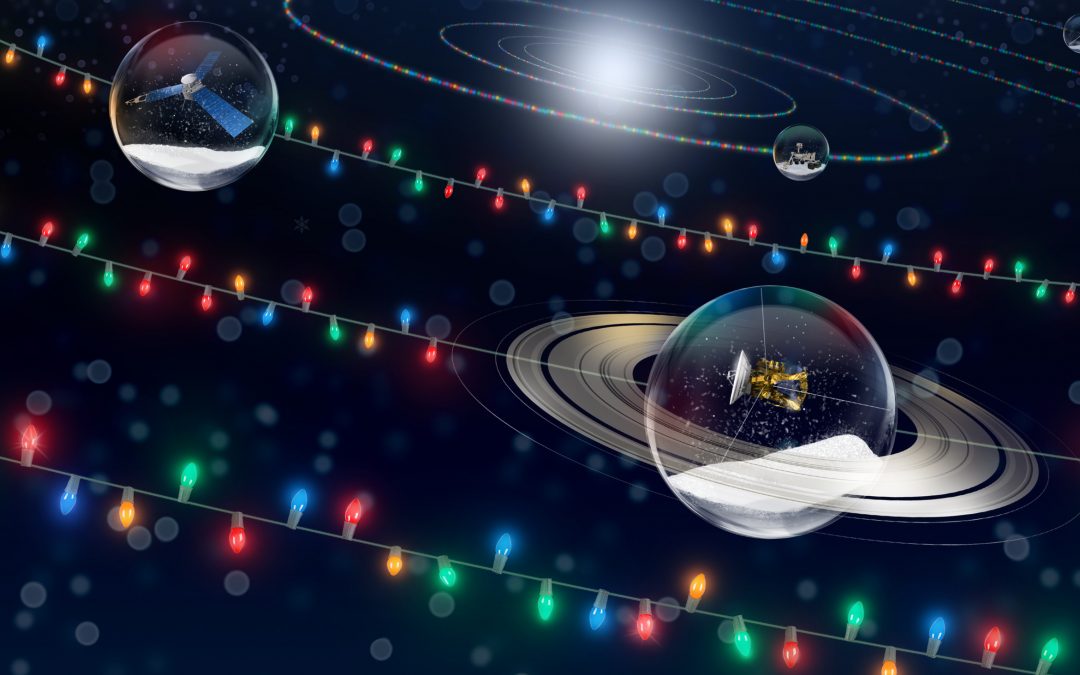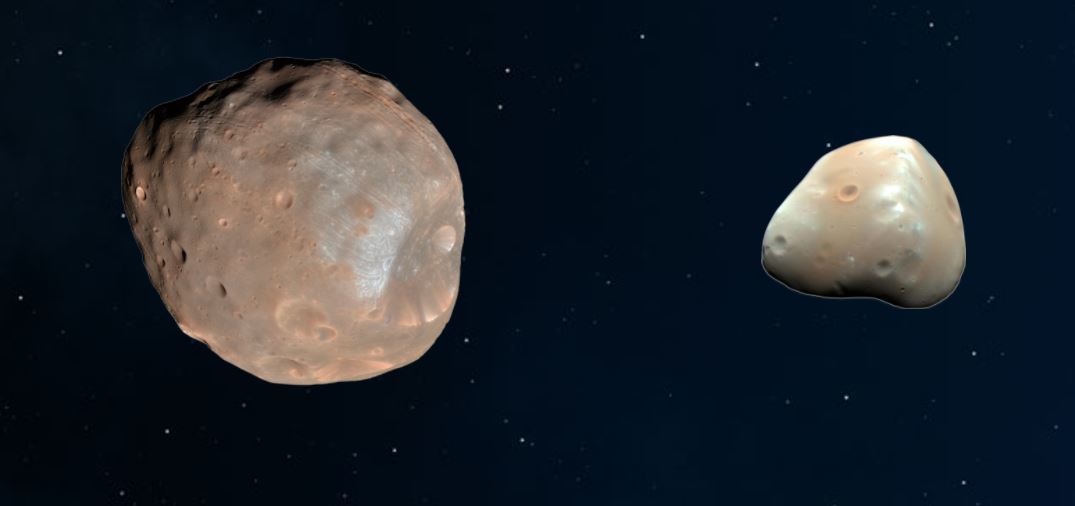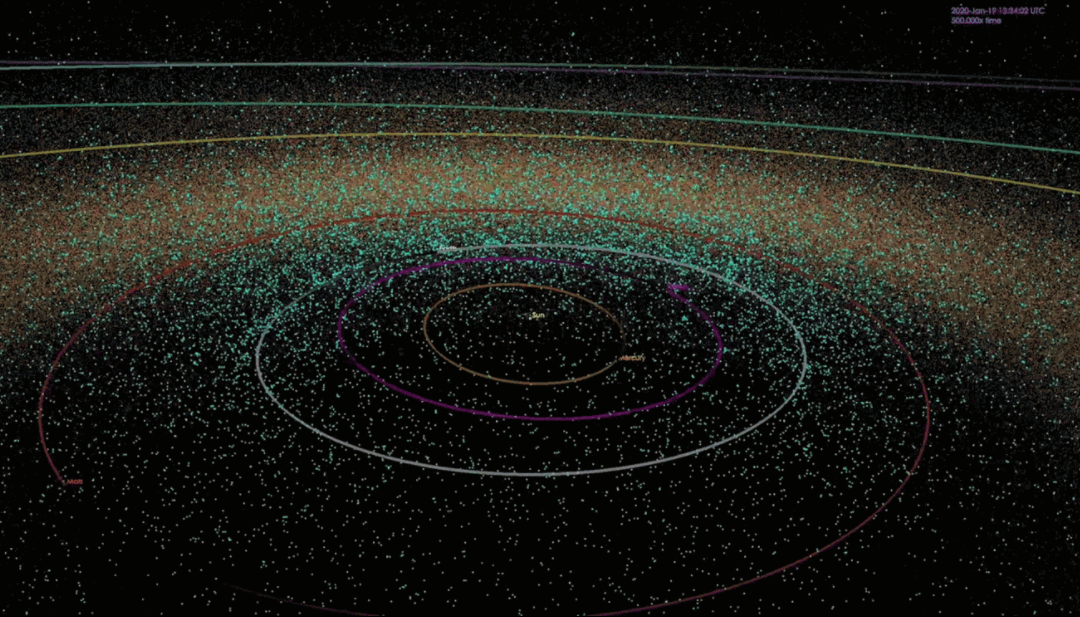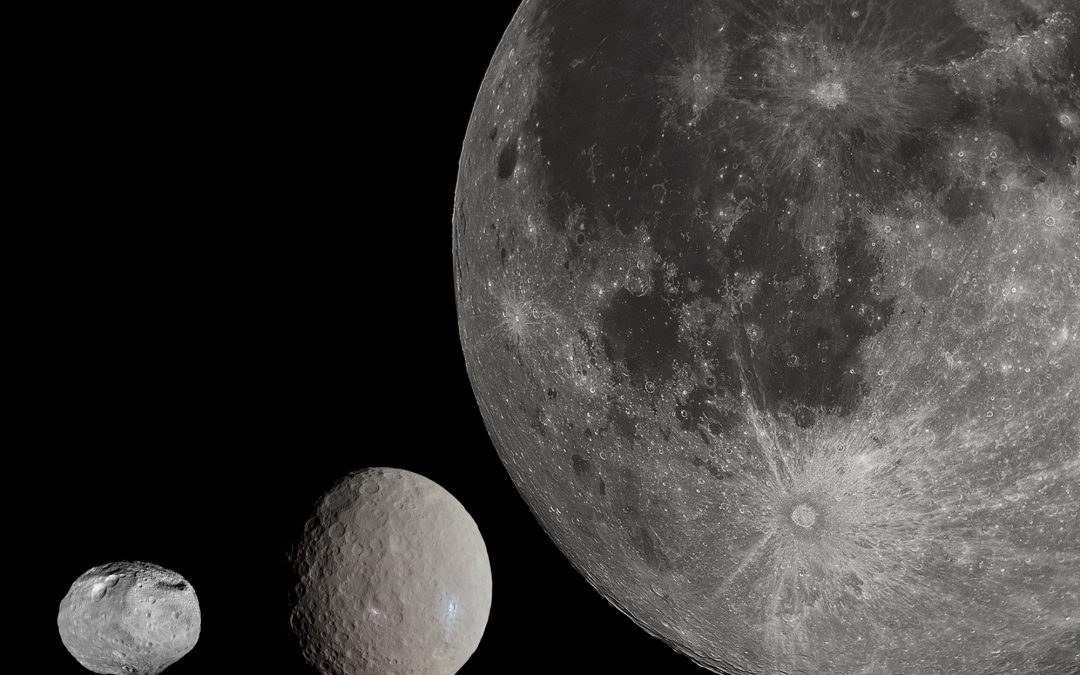We’ve reached the end of 2021, and this is the last episode of the year. Let’s look back at the big space events of the last year and talk about what we’re looking forward to in 2022.



Fraser Cain
Universe Today

Dr. Pamela Gay
CosmoQuest

We’ve reached the end of 2021, and this is the last episode of the year. Let’s look back at the big space events of the last year and talk about what we’re looking forward to in 2022.

We’ve talked about the icy objects of the Solar System, today let’s talk about space rocks. There’s a surprising variety of rocky material in the Solar System, and each object has a story to tell about the history and formation of the planets, moons and other rocky bodies.

Are asteroids dangerous? Just ask the dinosaurs, and they’ll tell you a sad story of fiery death. It turns out we’re in a shooting gallery of space rock and metal, and somewhere out there there’s one with our name on it. Should we be worried or are the risks so minimal to be irrelevant?

A rock is a rock is a rock, right? Across the Solar System there are giant rocky asteroids and even rockier moons. What’s the difference between these two families of objects, and where did they come from?
Recent Episodes
You know how a police siren changes sound when it passes by you? That's the doppler effect. It works for sound waves and it works for light waves. Astronomers use the doppler effect to study the motion of objects across the Universe, from nearby extrasolar planets to...
We've talked about the biggest of the big, now let's focus in on the smallest of the small. Let's see what's inside that basic building block of matter: the atom. You probably know the basics, but with ever more powerful particle accelerators, physicists are revealing...
When the Sun's solar winds crash into the Earth's magnetosphere, we get to enjoy an incredible light show called auroras, or the Northern and Southern Lights. Let's learn about what causes these incredible phenomena, and the best times and places that you can see them...
You might know the name "Hubble" because of the Hubble Space Telescope. But this phenomenal observatory was named after one of the most influential astronomers in modern history. Hubble discovered that galaxies are speeding away from us in all directions, leading to...
Launching a rocket into space requires a big effort on the ground. Space agencies have built up huge infrastructures to store, prepare and launch rockets. Let's take a look at what's involved on the ground at a place like Cape Canaveral. What happens before, during...
Every now and then, the Moon destroys the Sun. Okay, not destroys, covers. Well, not really covers, but from here on Earth, sitting inside the shadow of the Moon, that's what it sure looks like. These events are called eclipses, or more precisely, transits and...
Astronomers have been searching for the mysterious Planet X for hundreds of years. It was the search for a theoretical planet beyond Uranus that turned up Neptune, and then again for Pluto. And even now there are some astronomers who think there's a more distant...
Imagine an object with the mass of the Sun, crushed down to the size of Manhattan. Now set that object spinning hundreds of times a second, blasting out powerful beams of radiation like a lighthouse. That's a pulsar, one of the most exotic objects in the Universe. Ep....
Did you know there are 88 constellations in the night sky? Let's learn about the constellations and other star formations, their history, their connection to the zodiac, and how to find some of them. Ep. 157: Constellations Jump to Shownotes Jump to Transcript or...
This week we're going to talk about famous stars. But not those boring human ones you read about in People magazine. No, we're talking about those hot balls of plasma across the distant Universe. The close ones, the bright ones, the massive ones, the giant ones. Let's...
We think we live near an average star, but that's not the case at all. Compared to most stars in the Universe, the Sun is a giant! Let's look at the small end of the stellar spectrum, to stars with a fraction of the size and mass of our own Sun. There are many ways...
This week we step away from our regular programming to bring you a live show from Dragon*Con in Atlanta. Pamela shares the stage with SETI researcher Seth Shostak. Together they discuss the technology and science of searching for intelligence, And answer questions...
If you live in a city, it's possible that you've never seen the Milky Way with your own eyes. To really appreciate everything the night skies have to offer, you've got to get out of the city, away from the lights, where the skies are really dark. But those places are...
Did you know that our Solar System is a rarity with its single star. Astronomers believe that most star systems out there actually contain 2 or more stars - imagine seeing a sky with 4 suns. These binary and multiple star systems are a great target for new...
Take a quick breath. There, that's what we're going to talk about today - the atmosphere. And not just the Earth's familiar atmosphere, but the strange, exotic and deadly atmospheres we find in the Solar System and surrounding extrasolar planets. Ep. 151: Atmospheres...
We've explained how to get into astronomy and buy your first telescope. Now we're going to take things to the next level and get you drooling about bigger and better telescopes. If you're serious about astronomy, what kinds of telescopes will give you the best bang...
It's been more than 40 years since humans first set foot on the Moon. But plans are in place to return humans to the surface of the Moon, and maybe even to asteroids and the planet Mars. New rockets, landers and flight technology are all under development. Humans are...
Astronomy is one of the scientific fields that have been completely shaken up by new media. The Internet has enabled communication between researchers in a dramatic new way, creating new collaborations, removing obstacles, and drawing in an army of enthusiastic...
For those non-scientists trying to get their original ideas accepted by the scientific community, you've got to have thick skin. It might seem like there's a vast conspiracy, or a general attitude that drives away original, but unorthodox ideas. But that's not true,...
Have you ever wondered how astronomers do their research? How do they go from idea or question, to gathering their data, to publishing the research. What are all the hoops they have to jump through, the paperwork to fill out, and the cool toys they get to use along...